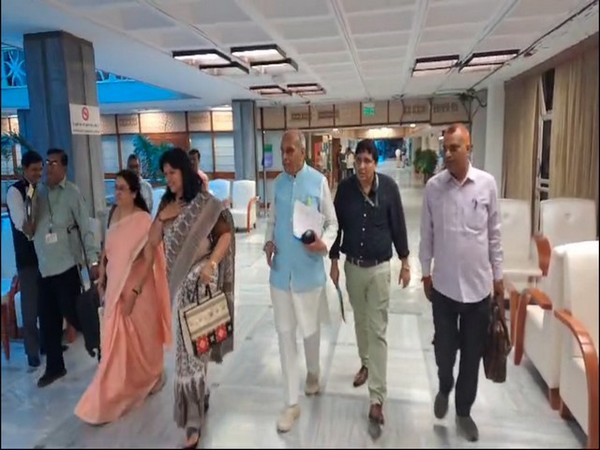Parliament's Joint Committee Discusses Waqf Amendments
The Joint Committee of Parliament on the Waqf (Amendment) Bill, 2024, chaired by MP Jagadambika Pal, convened to discuss proposed changes aimed at improving Waqf property governance. Representatives from key organizations and stakeholders have been invited. Public and expert suggestions are being solicited.

- Country:
- India
The second meeting of the Joint Committee of Parliament, chaired by MP Jagadambika Pal, on the Waqf (Amendment) Bill, 2024, commenced on Thursday morning at the Parliament House Annexe. Representatives from All India Sunni Jamiyatul Ulama, Indian Muslims for Civil Rights, Uttar Pradesh Sunni Central Waqf Board, and Rajasthan Board of Muslim Waqf were called for discussions.
Speaking to reporters ahead of the meeting, JPC Chairman Pal emphasized the government's intent to formulate an improved Waqf amendment bill. 'We plan to consult as many Waqf boards as possible, including minority organizations,' Pal stated. Representatives from major Waqf entities have been invited to contribute to the discourse.
The Lok Sabha Secretariat released a statement inviting public input on the bill. Stakeholders, NGOs, experts, and institutions can submit written suggestions to the Joint Secretary within 15 days of the advertisement. These submissions will be confidential and receive committee privileges. The JPC will report its findings to the House by the first week of the Winter Session.
The Waqf Amendment Bill was introduced during the Budget Session and referred to the 31-member Joint Committee, led by Pal. The government emphasizes the need for amendments to enhance Waqf property governance, including provisions for non-Muslim participants in Waqf boards and delineating the District Collector as the arbiter of property status.
(With inputs from agencies.)










